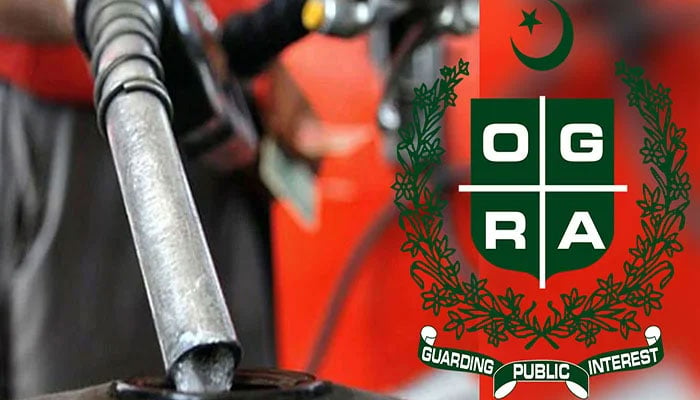Refiners seek tax clarity on escrow funds under new policy
KARACHI: Local refining sector has asked the government to clarify whether funds to be held in escrow accounts under the new refining policy will be subject to taxation, industry sources told The News on Monday.
The new policy, approved by the cabinet in July, offers incentives to refineries that commit to upgrade their facilities to produce Euro-V compliant fuels and reduce furnace oil output. Under the policy, the Oil and Gas Regulatory Authority (OGRA) and each refinery will open a joint escrow account for upgradation.
The release from the joint escrow account will be made on a pro rata basis, i.e. a maximum of 25 percent from the escrow account and 75 percent from the refinery’s own resources for the upgradation and it will be audited by internationally reputed firms to ensure transparency and accountability.
However, the sources said that the taxation status of the escrow account is still unclear and is being discussed in the ongoing talks between the government and refineries to finalise the agreements.
"Taxation or no taxation on escrow account is being discussed presently between the government and refineries to move forward for agreements between OGRA and refineries," an industry official said.
Industry officials said said that local refineries wrote a letter to the Petroleum Division a few days ago, which sought the opinion from the Federal Board of Revenue (FBR) on the matter. They added that if FBR imposed taxes on the escrow account, then it would hamper the plans of the local refineries to go for upgradation. "The amount from the escrow account is a grant and it does not fall under the ambit of taxation."
However, they noted that FBR has no concerns about these things and it simply goes for collecting the taxes. Sources said that local refineries are hopeful of reaching an agreement with OGRA before the expiry of the deadline in the next 10 days, but the taxation issue is an impediment in the finalisation of these agreements.
The refining policy envisages that s refinery and Ogra will open the requisite escrow account within three months. Until the account is opened, the incremental incentive will be deposited in the IFEM.
The refining policy expects a massive reduction in the furnace oil production capacity of all refineries after upgraded local refineries produce more petrol and diesel from crude oil than fuel oil.
According to the policy document, all existing refineries are encouraged to upgrade, modernise, and expand their refineries to produce environmentally friendly fuels as per Euro-V specifications and to maximise the production of motor gasoline and diesel by minimising furnace oil and other fuels.
The refineries that commit to upgrade shall be entitled to incentives under this Policy. The selection of equipment, technology, or process will be on a project-to-project basis by the concerned refineries.
-
 Bridgerton’s Michelle Mao On Facing Backlash As Season Four Antagonist
Bridgerton’s Michelle Mao On Facing Backlash As Season Four Antagonist -
 King Charles Gets New ‘secret Weapon’ After Andrew Messes Up
King Charles Gets New ‘secret Weapon’ After Andrew Messes Up -
 Shia LaBeouf Makes Bold Claim About Homosexuals In First Interview After Mardi Gras Arrest
Shia LaBeouf Makes Bold Claim About Homosexuals In First Interview After Mardi Gras Arrest -
 Princess Beatrice, Eugenie ‘strained’ As They Are ‘not Turning Back’ On Andrew
Princess Beatrice, Eugenie ‘strained’ As They Are ‘not Turning Back’ On Andrew -
 Benny Blanco Addresses ‘dirty Feet’ Backlash After Podcast Moment Sparks Online Frenzy
Benny Blanco Addresses ‘dirty Feet’ Backlash After Podcast Moment Sparks Online Frenzy -
 Sarah Ferguson Unusual Trait That Confused Royal Expert
Sarah Ferguson Unusual Trait That Confused Royal Expert -
 Prince William, Kate Middleton Left Sarah Ferguson Feeling 'worthless'
Prince William, Kate Middleton Left Sarah Ferguson Feeling 'worthless' -
 Ben Affleck Focused On 'real Prize,' Stability After Jennifer Garner Speaks About Co Parenting Mechanics
Ben Affleck Focused On 'real Prize,' Stability After Jennifer Garner Speaks About Co Parenting Mechanics -
 Luke Grimes Reveals Hilarious Reason His Baby Can't Stop Laughing At Him
Luke Grimes Reveals Hilarious Reason His Baby Can't Stop Laughing At Him -
 Why Kate Middleton, Prince William Opt For ‘show Stopping Style’
Why Kate Middleton, Prince William Opt For ‘show Stopping Style’ -
 Here's Why Leonardo DiCaprio Will Not Attend This Year's 'Actors Award' Despite Major Nomination
Here's Why Leonardo DiCaprio Will Not Attend This Year's 'Actors Award' Despite Major Nomination -
 Ethan Hawke Reflects On Hollywood Success As Fifth Oscar Nomination Arrives
Ethan Hawke Reflects On Hollywood Success As Fifth Oscar Nomination Arrives -
 Tom Cruise Feeling Down In The Dumps Post A Series Of Failed Romances: Report
Tom Cruise Feeling Down In The Dumps Post A Series Of Failed Romances: Report -
 'The Pitt' Producer Reveals Why He Was Nervous For The New Ep Of Season Two
'The Pitt' Producer Reveals Why He Was Nervous For The New Ep Of Season Two -
 Maggie Gyllenhaal Gets Honest About Being Jealous Of Jake Gyllenhaal
Maggie Gyllenhaal Gets Honest About Being Jealous Of Jake Gyllenhaal -
 'Bridgerton' Star Luke Thompson Gets Honest About Season Five
'Bridgerton' Star Luke Thompson Gets Honest About Season Five




